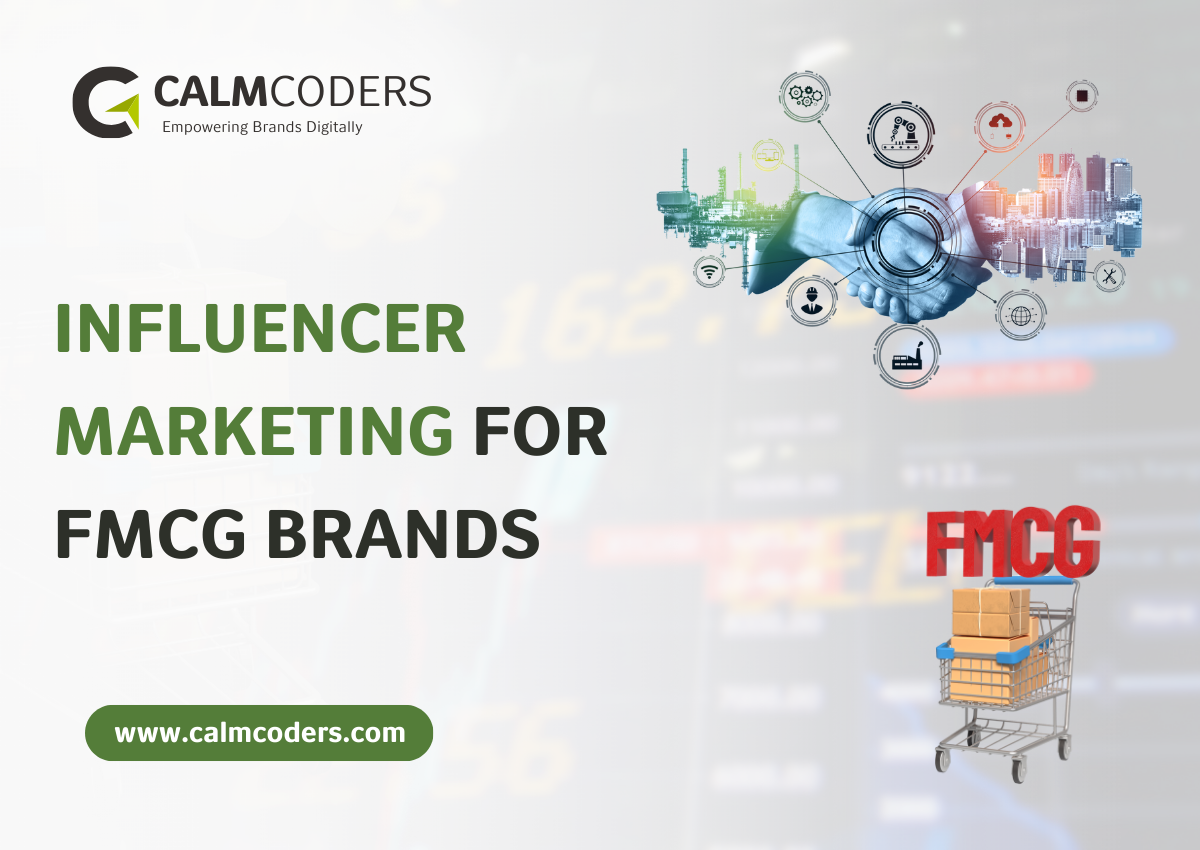In the fast-paced world of Fast-Moving Consumer Goods (FMCG), capturing consumer attention is more challenging than ever. Traditional advertising methods are becoming less effective, and consumers are increasingly turning to social media for product recommendations. This shift has made influencer marketing a pivotal strategy for FMCG brands aiming to enhance visibility and drive sales.
In this guide, we’ll explore:
- The significance of influencer marketing in the FMCG sector
- Effective strategies for leveraging influencers
- Best practices for successful campaigns
- Real-world case studies
- Common pitfalls to avoid
Why Influencer Marketing Matters for FMCG Brands
Influencer marketing offers FMCG brands a unique opportunity to:
-
Enhance Brand Awareness: Influencers have dedicated followers who trust their opinions, allowing brands to reach a wider audience.
-
Build Credibility: Collaborating with trusted influencers can lend authenticity to your brand.
-
Drive Sales: Influencers can directly impact purchasing decisions through compelling content.
-
Engage Target Audiences: Micro and nano-influencers often have highly engaged audiences, leading to better interaction rates.
According to a report by Zefmo, FMCG was the highest spender on influencer marketing in 2021, increasing their spending by more than 62% compared to an average of 40% across all sectors.
Crafting an Effective Influencer Marketing Strategy
1. Define Clear Objectives
Before launching an influencer campaign, establish clear goals. Whether it’s increasing brand awareness, driving sales, or promoting a new product, having defined objectives will guide your strategy and help measure success.
2. Identify the Right Influencers
Choose influencers whose audience aligns with your target demographic. Consider factors like:
- Audience Demographics: Ensure their followers match your target market.
- Engagement Rates: High engagement often indicates a loyal and active audience.
- Content Style: Their content should resonate with your brand’s voice and values.
3. Develop Compelling Content
Work with influencers to create authentic and engaging content that showcases your product in a relatable way. This could include:
- Product reviews
- Tutorials
- Behind-the-scenes content
- User-generated content
4. Monitor and Measure Performance
Track the performance of your campaigns using metrics such as:
- Engagement rates (likes, comments, shares)
- Click-through rates
- Conversion rates
- Return on investment (ROI)
Tools like Google Analytics, Hootsuite, and Sprout Social can help monitor these metrics.
Best Practices for FMCG Influencer Campaigns
- Leverage Micro and Nano-Influencers: These influencers often have higher engagement rates and can be more cost-effective.
- Focus on Storytelling: Create narratives that connect emotionally with the audience.
- Ensure Compliance: Adhere to advertising standards and regulations.
- Provide Creative Freedom: Allow influencers to present your product in a way that feels authentic to their audience.
Real-World Case Studies
1. Gillette India’s Influencer Campaign
Gillette India collaborated with influencers to promote their shaving products, resulting in increased brand visibility and consumer trust. The campaign effectively utilized relatable content to engage the target audience.
2. Vita Coco’s Community-Centered Approach
Vita Coco shifted its PR strategy by moving away from extravagant influencer gifting campaigns to a more community-centered approach. They set up a DIY vending machine in Washington Square Park, New York, where people could enjoy free Strawberries & Crème Treats made with Vita Coco’s coconut water. This initiative aimed to foster genuine connections with the community and received a positive response, attracting enthusiastic crowds.
Common Pitfalls to Avoid
-
Neglecting Audience Alignment: Ensure the influencer’s audience matches your target demographic.
-
Overlooking Authenticity: Authentic content resonates better with audiences than overly polished advertisements.
-
Ignoring Compliance: Always disclose sponsored content to maintain transparency and trust.
-
Underestimating ROI Measurement: Without proper tracking, it’s challenging to assess the effectiveness of your campaigns.
Ready to Amplify Your Brand’s Reach?
Influencer marketing presents a powerful avenue for FMCG brands to connect with consumers in a meaningful way. By implementing the strategies and best practices outlined above, you can create impactful campaigns that drive results.
At Calm Coders, we specialize in crafting tailored influencer marketing strategies that align with your brand’s goals and values. Contact us today to learn how we can help you leverage the power of influencers to elevate your FMCG brand.




